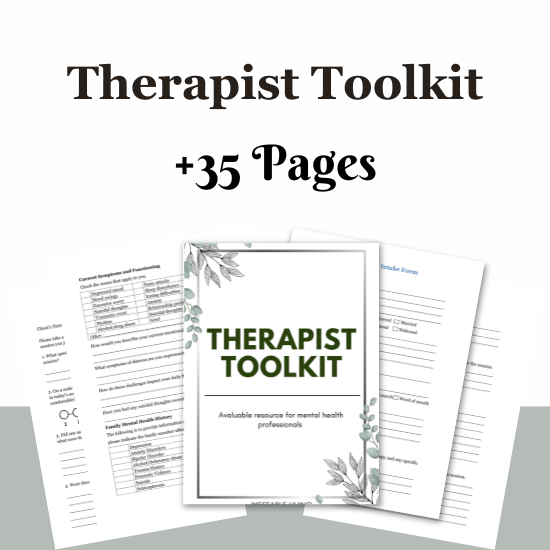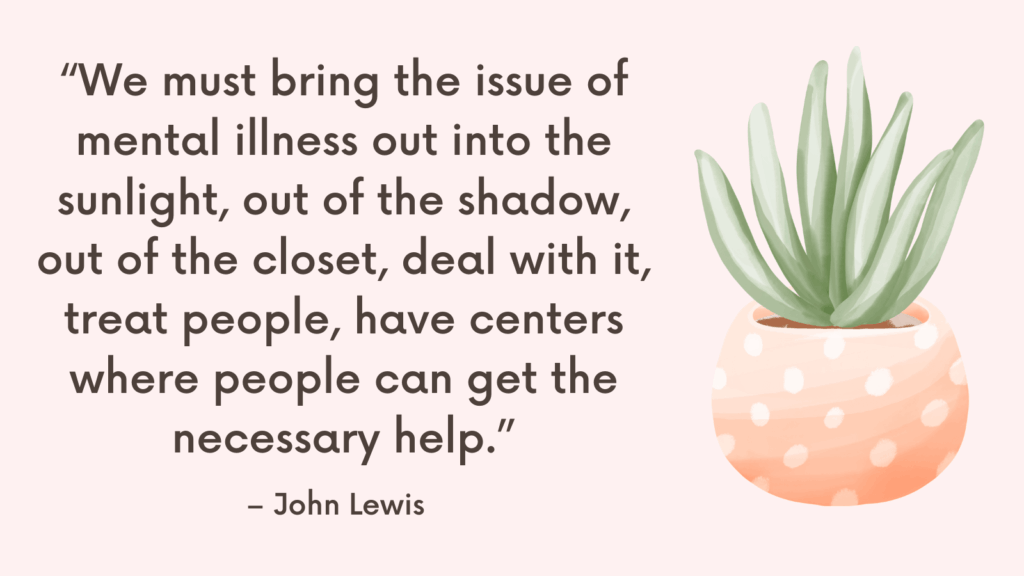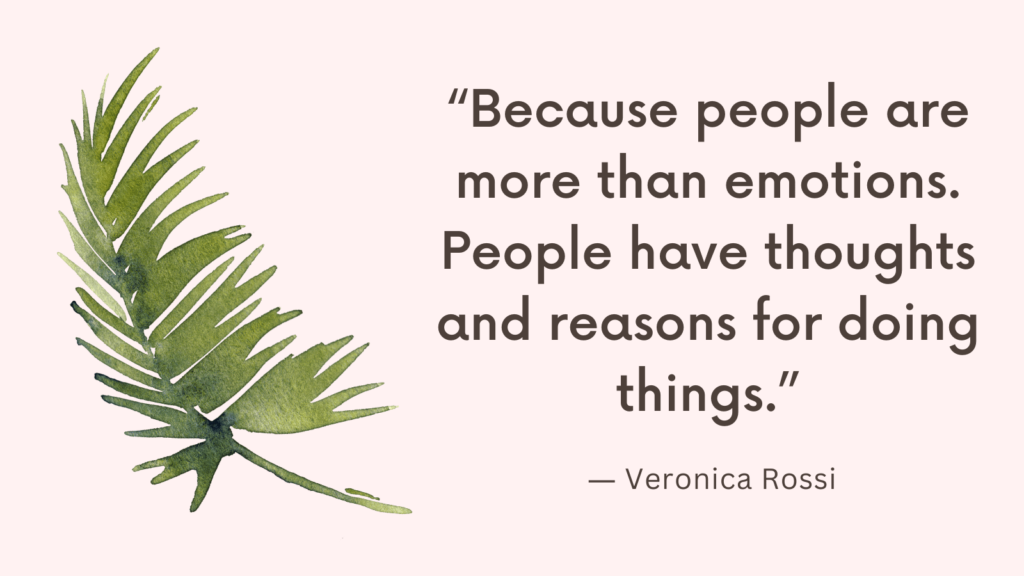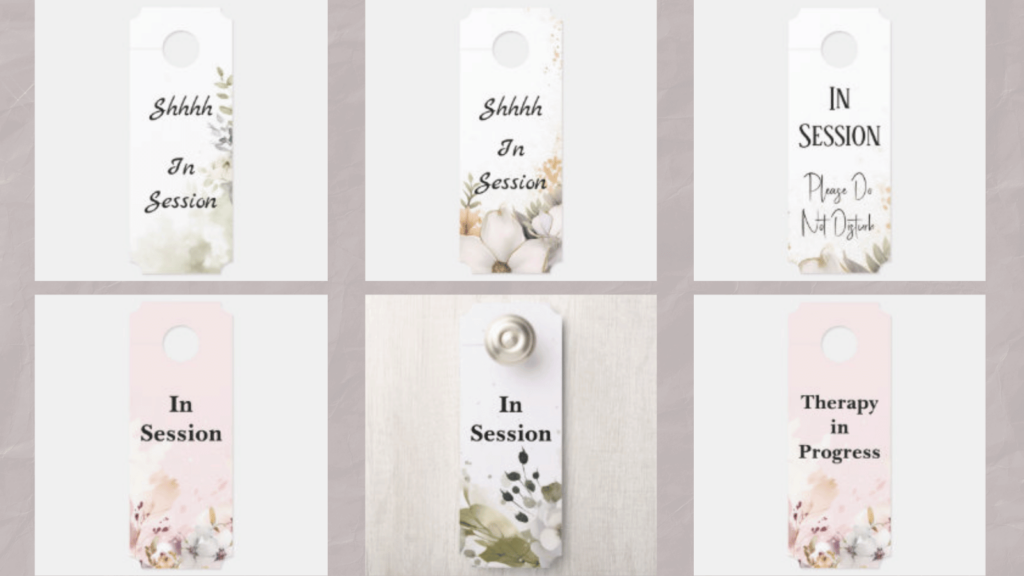Growing a therapy practice isn’t just about marketing — it’s about building trust, visibility, and connection in ways that feel aligned with who you are. Clients seek therapists who feel safe, grounded, and authentic. Getting more clients means understanding how people find help, what they’re afraid of, and what makes them choose you over the hundreds of other therapists they scroll past. Visibility isn’t about self-promotion — it’s about making it easier for people in pain to find you.
Why Clients Struggle to Reach Out
Many people who need therapy hesitate long before booking:
- Fear of being judged
- Shame about needing help
- Worry about opening up
- Confusion about what therapy involves
- Past negative experiences with professionals
- Feeling like their problems “aren’t bad enough”
- Overwhelm about choosing the right person
- Concern about the cost or commitment
When these fears aren’t addressed—including implicitly in your branding—people stay silent.
How to Get More Clients as a Therapist?
1. Clarify Your Niche So People Know Exactly Who You Help
People don’t look for “a therapist.” They look for:
Help with anxiety
Help healing from narcissistic abuse
Help with childhood trauma
Help with burnout
Help with attachment wounds
When your niche is vague, your message blends into noise. Clarity attracts.
A niche isn’t limiting — it creates recognition.
2. Speak the Language Your Ideal Clients Already Use
Clients don’t search for clinical terms. They search for what they feel:
“Why do I feel broken?”
“Why do I attract toxic partners?”
“Why can’t I stop overthinking?”
Use relatable, emotional language in your website, posts, and materials. When people feel understood, they feel drawn to you.
Related: How To Write Therapy Notes Faster and More Efficiently?
3. Create Helpful Content That Builds Trust
Your content is not just marketing — it’s your first therapeutic impression.
Blog posts
Short videos
Instagram carousels
Newsletter insights
When you offer real value, you become someone clients already trust before they ever reach out.
4. Be Consistent — Not Perfect
Consistency builds visibility. You don’t need to post daily, but you need a rhythm:
Once a week on social media
Two blog posts per month
Monthly email newsletters
Clients come when you show up regularly, not when you show up flawlessly.
5. Share the Problems You Help Solve, Not Just Your Qualifications
Listing credentials isn’t enough. People want to know how you’ll help them feel better.
Tell them:
“I help people stop people-pleasing.”
“I help anxious clients feel steady again.”
“I help trauma survivors feel safe in their bodies.”
Clients choose the therapist who speaks to their pain — not the one with the most certifications.
Related: CBT Worksheets Bundle (FREE PFD Download)
6. Make Your Website Emotionally Safe and Easy to Navigate
Your website is often your first therapeutic space. It should feel calm, clear, and welcoming. A client should be able to find:
What you help with
Your approach
Your fees
Your availability
How to book
Ease reduces anxiety — and increases inquiries.
7. Create a Simple, Compassionate “Work With Me” Page
Clients often feel overwhelmed when seeking help. Make the process simple:
What to expect
How sessions work
Who your services are for
Who they’re not for
How to schedule
Uncertainty is a barrier. Clarity removes that barrier.
8. Offer a Calm, Warm Consultation Call
Clients aren’t evaluating your skill during a consult — they’re evaluating how they feel with you.
Do you listen?
Do you validate?
Do you feel grounded?
Do you speak with clarity and compassion?
A soothing presence converts more clients than any marketing strategy.
9. Network Without Feeling “Salesy”
Networking isn’t about self-promotion — it’s about connection.
Connect with:
Coaches
Doctors
Wellness practitioners
Yoga studios
School counselors
Support groups
When others trust you, they refer clients who need your style of care.
Related: Best 10 Group Therapy Books
10. Get Visible Where Your Ideal Clients Spend Time
If your clients are:
Young adults — TikTok, Instagram
High achievers — LinkedIn
Parents — Facebook groups
Teens — Reels, TikTok
Women healing from trauma — Instagram, Pinterest
Visibility increases when you meet people where they already are.
11. Share Realistic, Grounded Psychoeducation
People trust therapists who educate without overwhelming them.
Share bite-sized insights:
Trauma responses
Attachment patterns
Overthinking habits
People-pleasing dynamics
Nervous system regulation
Clients come to the therapist who helps them understand themselves.
12. Create Free Resources That Showcase Your Approach
Free resources build trust and demonstrate your therapeutic style:
Mini-guides
Short worksheets
Downloadable journal prompts
PDF checklists
The more you help upfront, the more clients naturally gravitate toward you.
Related: Best 12 Books For Therapists
13. Show Your Human Warmth (While Staying Professional)
Clients want a therapist who feels real, not robotic.
Share grounded personal insights
Talk openly about the human experience
Reflect on healing themes
You can stay professional without being distant. Warmth attracts.
14. Ask Current Clients for Referrals (Gently and Ethically)
When appropriate, you can say:
“If you know anyone who might benefit from support, feel free to share my information.”
No pressure. Just openness.
People trust recommendations from those who feel safe with you.
15. Keep Your Therapeutic Presence Steady and Grounded
Your energy is your brand.
Calm presence
Clear communication
Warm empathy
Nonjudgmental tone
Consistent boundaries
Clients return — and refer — when they feel emotionally safe with you.
16. Understand That Not Every Client Is Your Client
The more you understand who you work best with, the more aligned your caseload becomes. Working with the right clients leads to better outcomes — and better word-of-mouth referrals.
Related: Best 10 Positive Psychology Books
17. Be Patient — Growth Is Slow but Stable
Building a therapy practice takes time. But every piece of content, every referral, every conversation builds momentum. Clients don’t always come immediately — but they come steadily when you stay visible, grounded, and compassionate.

Conclusion
Getting more clients isn’t about hustling or performing. It’s about alignment, clarity, consistency, and genuine connection. When you speak to people’s emotions, make it safe to approach you, and show up with grounded presence, clients naturally gravitate toward you.



